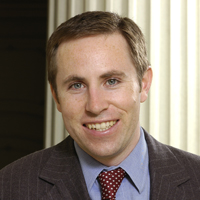Moynihan elected fellow of the National Academy of Public Administration
University of Wisconsin–Madison public affairs professor Donald Moynihan has been elected a fellow of the National Academy of Public Administration, one of the youngest members to be elected since Congress chartered the academy in 1967.

Moynihan
Moynihan is associate director of the La Follette School of Public Affairs. He focuses his research on the application of organization theory to public management issues such as performance, budgeting, homeland security, election administration and employee behavior. In particular, he studies the selection and implementation of public management reforms. He launched the Performance Information Project in 2009 to bring together contemporary empirical research on how public services use performance data.
Moynihan is the second current La Follette School faculty member chosen for the academy. David Weimer was inaugurated as an academy fellow in 2008. Clara Penniman, the founder of La Follette School precursor Center for the Study of Public Policy and Administration, also was a fellow.
“I am honored to join my colleague David Weimer as a member of NAPA,” Moynihan says. “The organization provides a chance to help public organizations, and in that respect represents the Wisconsin Idea in action.”
Moynihan serves on the Policy Council of the Association for Public Policy Analysis and Management. He is co-editor of the Journal of Public Administration Research and Theory and Public Administration Review. His book, “The Dynamics of Performance Management,” won the 2009 best book award from the Public and Nonprofit Division of the Academy of Management.
An independent, nonpartisan coalition of top public management and organizational leaders, the National Academy of Public Administration helps public sector leaders by anticipating, evaluating, analyzing and making recommendations on the nation’s most critical and complex public management, governance, policy and operational challenges. Government agencies, Congress and private foundations seek assistance from the academy and its 680 fellows.




